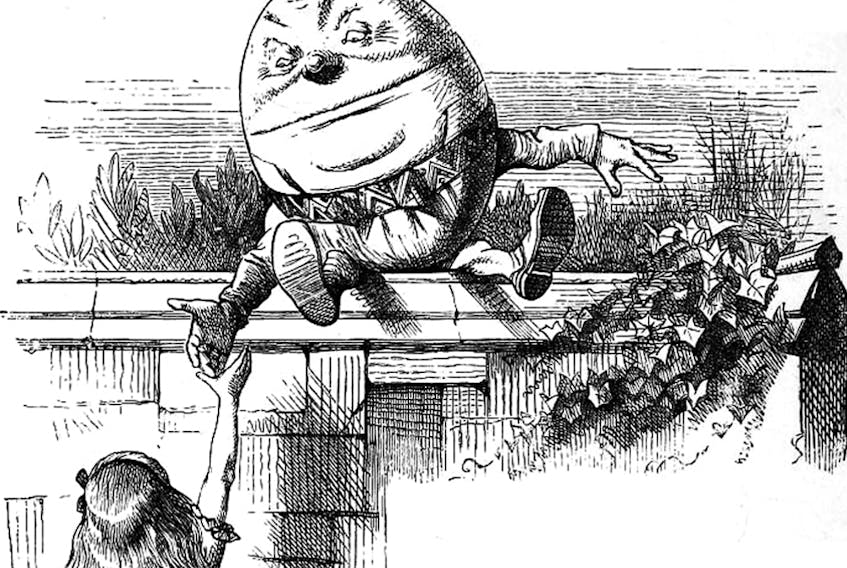The broad, sweeping and potentially abusive powers under the federal government’s Greenhouse Gas Pollution Act was one major reason for a dissenting opinion from two Saskatchewan Court of Appeal judges.
Judges Ralph Ottenbreit and Neal Caldwell said the act was unconstitutional because it would allow the federal government the power to change the act any way it wanted.
The judges noted that the act contained 430 references to the word “prescribed” — the definition of which was so broad and open-ended that it allowed the federal government enormous scope.
“The profuse use of the word prescribed in the Act is reminiscent of the statement of that egg-shaped philosopher in Lewis Carroll’s Through the Looking Glass (1872) who said, in a rather scornful tone, ‘When I use a word … it means just what I choose it to mean — neither more nor less’,” said the judges.
They said, “Part 1 grants sweeping legislative law-making power to the executive branch of the federal government to adapt or modify the statute itself, including the power to adapt and modify any provision of Part 1 and to redefine words and expressions already defined in the statute.”
Such power usurped the role of parliament, they said.
“These provisions not only usurp the legislative role of Parliament but create the disturbing potential for an off-the-books widening of the practical and legal scope of the Act and of its effects as and whenever the policies or objectives of the executive branch of the federal government change. The impact on the Provinces of any such future widening is potentially unlimited and is certainly unqualifiable and unquantifiable at this point.”
The judges said the act was not in accordance with the Constitution Act of 1869.
“This is both the heart and the lifeblood of Confederation. The balance of power struck under the Constitution Act, 1867 was critical to the formation of Canada and remains critical to our continued confederation.”
They then referred to a judgment from the Supreme Court of Canada that said, “It is a fundamental principle of federalism that both federal and provincial powers must be respected, and one power may not be used in a manner that effectively eviscerates another. Rather, federalism demands that a balance be struck, a balance that allows both the federal Parliament and the provincial legislatures to act effectively in their respective spheres.”
The government had argued that the carbon tax needed to be imposed for the “peace, order and good government” of Canada.
“The real question is whether the Provinces are capable of dealing with the matter and whether a uniform law is clearly and unequivocally needed in the circumstances,” said the judges.
They noted that Saskatchewan had passed legislation aimed at reducing greenhouse gases (GHG).
But the federal government had argued that “national benchmarks” were needed to ensure “optimal policy.”
“In our opinion, the notion that national benchmarks are required merely speaks of a federal dissatisfaction with Provincial policy and a desire to impose federal policies on those Provinces now not meeting the benchmark and on those whose future policies may, at some point, fail to meet the federal benchmark. It is a dispute about what the right numbers are and who gets to decide what they are.”
They added, “The Act pervades the life and economy of each Province it affects. It unilaterally imposes federal policy in place of Provincial policy on the same matter, a matter over which the Provinces have exclusive jurisdiction. The Act sets forth an approach to GHG mitigation that hinders a Province’s ability to fashion its own, local response to GHG emissions at the level that is most suited to achieving the nuanced response that a diverse country requires.”
Having determined that the government’s “fuel levy” was, in fact, a tax, the two judges said this also violated the constitution.
“The formula used to calculate the rate of levy was initially set by Parliament … but the executive branch of the federal government is not bound by what Parliament has set…. The federal cabinet has the authority to amend and redefine any aspect of the tax to its whim.”
This, the judges said, was a recipe for abuse.
Copyright Postmedia Network Inc., 2019









